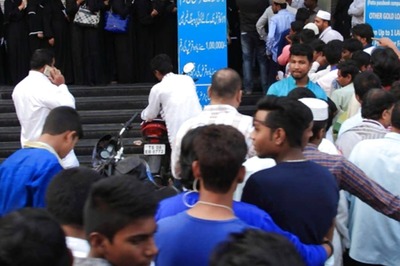
views
New Delhi: Jharkhand Chief Minister Hemant Soren has ordered the formation of a committee to look into the possibilities of defining the state's domicile policy.
Whenever finalised, the policy is expected to have a huge impact on the process of recruitment for government jobs with a sizeable number of openings to be set aside for locals (mainly tribals).
Defining the term ‘domicile’ has been a long-pending demand of tribals in the state -- perhaps as old as the state itself.
It was one of the top priorities of the state's first chief minister, Babulal Marandi. It also proved to be his undoing. According to a proposal made by his government, any person whose parents' name did not figure in the land records of 1932 was not considered a domicile.
The move sparked unrest in the state and in July 2002, two years after the formation of the state, five people died in protests. Eventually, 25 months after he took oath as Jharkhand's first CM, Marandi had to withdraw the proposal and resign. Why is then Soren deliberating over this policy? In this explainer, News18 would try and answer this and some other questions related to the subject.
Why is Soren pursuing the same policy?
It is because the domicile issue is quite close to the adivasis who voted for him in large numbers in the recently held Assembly elections. There is palpable anger among locals that 'outsiders' are getting all the well-paid jobs, while the tribals are being denied a favourable space by their own government.
The move is meant to signal to his core voters that he stands firmly with them. Soon after coming to power, Soren had ordered withdrawal of all Pathhargarhi-related cases, in nearly all of which adivasis were the main accused.
What will it mean for those whose parents' names do not figure in the land records of 1932?
As of now, it doesn't seem that Soren's high-level committee will decide on the same date. Government sources say the committee could look at different cut-offs, even as late as 1980's. That's because, quite understandably, a lot of people have moved into the state since 1930's, and have been working in its various PSUs, government and private firms.
Whole new cities, like Bokaro, have come up in the meantime and framing a policy not keeping the interests of this population in mind could affect Soren the same way it did to Marandi.
Will Soren, who has publicly opposed the National Register of Citizens (NRC) and National Population Register (NPR), not be criticised for creating a similar policy in his state?
The two things are not comparable, but yes, whenever domicile policy is brought into effect, it will require enumeration. It will require people having to submit their certificates to the government to prove that they are state subjects to secure government jobs.
Soren may be called out for having 'double-standards' on this issue as he is publicly opposed to enumeration in the NRC, NPR exercises.
Some government sources say a middle ground could be reached if the domicile policy is applied only to lower grades, like grades 3 and 4, government jobs. In that case, people from outside would anyway not find it lucrative to move all the way to the state for such jobs.




















Comments
0 comment